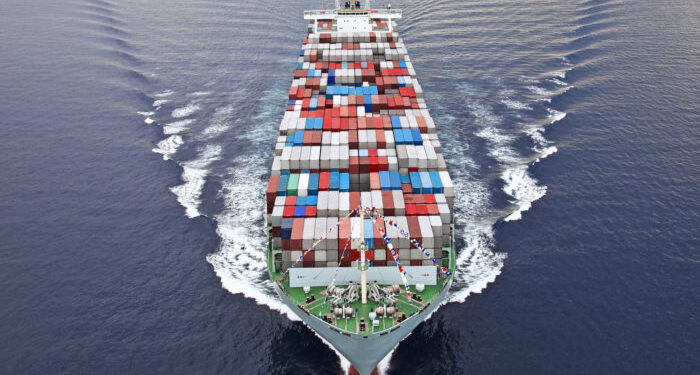On April 8 in Singapore, the International Chamber of Shipping (ICS), the Asian Shipowners’ Association (ASA) and the European Community Shipowners’ Association (ECSA) signed a joint memorandum of understanding. The MoU enhances the level of co-operation that already exists between these international trade associations and provides a framework for their closer co-operation.
Specifically, the agreement recognises the organizations’ respective memberships of national shipowners’ associations and the relationship which their members enjoy with their national governments.
[smlsubform prepend=”GET THE SAFETY4SEA IN YOUR INBOX!” showname=false emailtxt=”” emailholder=”Enter your email address” showsubmit=true submittxt=”Submit” jsthanks=false thankyou=”Thank you for subscribing to our mailing list”]
It also confirms the roles of ICS, ASA and ECSA as the principal global and regional associations, representing shipowners and operators, in all shipping sectors and trades, with those global and regional organisations, regulators and other bodies which impact and affect the interests of international shipping.
Namely, the associations agreed on the following:
- Encourage high standards of operation and the provision of high quality and efficient shipping services;
- Strive for a regulatory environment which embraces safe shipping operations, protection of the environment, maintenance of open markets and fair competition based on free trade principles, as well as adherence to internationally adopted standards and procedures;
- Support such regulation of shipping at a global level, in particular at the United Nations International Maritime Organization (IMO) and the International Labour Organization (ILO);
- Oppose, where appropriate, unilateral and regional action by governments;
- Press for recognition of the commercial requirements of shipping and of the need for operators who meet the required standards to secure a proper commercial return;
- Remain committed to the promotion and updating of industry guidance on best operating practices;
- Cooperate with other organisations, including intergovernmental, regional, governmental and non-governmental bodies, in the pursuit of these objectives;
- Promote the industry’s profile as a safe, clean, energy efficient, well regulated and responsible facilitator of global trade;
- Anticipate whenever possible, and respond whenever appropriate, to policies and actions which may conflict with the above.
- Share information about international, regional and national developments that may potentially affect or impact upon the interests of international shipowners and operators;
- Participate, as appropriate, in the work of their respective associations’ Annual General Meetings and policy making committees, with reciprocal rights of attendance at meetings;
- Contribute to the development of, and ENDORSE AND PROMOTE, as may be appropriate, joint policy positions and papers with governments and regional bodies;
- Invite comment on draft policy positions and initiatives on which the other associations may have legitimate interest in expressing their views;
- Disseminate and exchange any other information that may be relevant to the activities and interests of their respective associations, member national shipowners’ associations, and the industry which they collectively exist to serve;
- Respect and protect intellectual property rights and confidentiality requests of the respective lead associations. The three associations undertake not to distribute each other’s materials, including circulars, to their members that are not members of the lead association without first obtaining permission and to acknowledge the source.
- Recognise that closer cooperation on relevant issues of maritime affairs will be in the interest of all shipowners and operators, ICS, ASA and ECSA commit to closer cooperation as outlined herein.
ICS Chairman, Mr Esben Poulsson, stated:
Shipping is a global industry requiring global rules. It is only natural that as the representatives of the world’s national shipowner associations that we should further cement our relationships to ensure that we work as effectively as possible in support of a global regulatory framework for shipping and in opposition to unwelcome regional or unilateral initiatives that may impede the efficiency of maritime trade
For his side, ASA President, Mr Bhumindr Harinsuit, noted that it is very important for the interests of Asian shipping to be properly represented at the global level, especially with the increasing importance of Asian economies to overall demand for shipping services.
Finally, ECSA President, Mr Panagiotis Laskaridis, highlighted that ‘the maritime policies of the European Union have a significant impact on regulatory developments at fora such as the UN IMO, with major implications for ship operators in Europe and globally.’
Cooperation with ICS and ASA allows us to enhance our joint efforts to represent the best interests of shipowners, whether at bodies such as IMO or when dealing with the EU institutions






























































